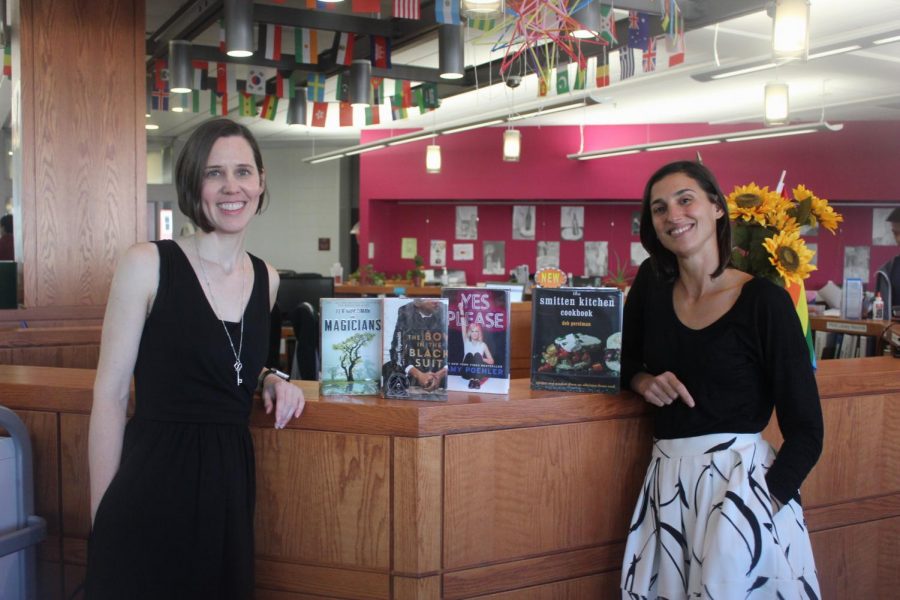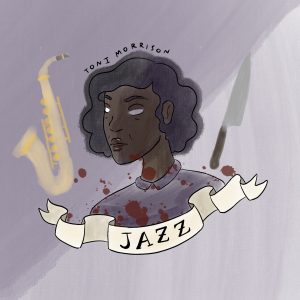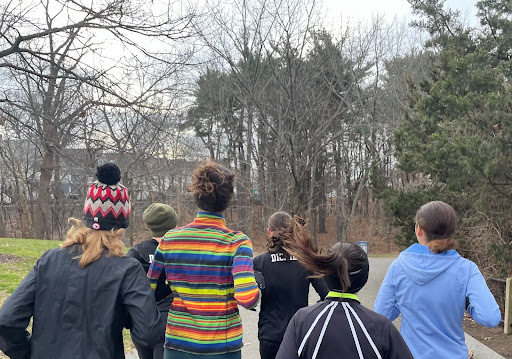Interviews on the Importance of Reading
October 30, 2017
Teenagers in 2017 are consuming information faster than ever before. There have been astounding technological advancements over the last two decades, such as the mainstream integration of smartphones and social media. But as a result, books and other forms of print media are sometimes regarded as a thing of the past or things that are exclusively associated with dreaded homework assignments. Is reading books unimportant and “boring”? The Register Forum consulted a CRLS English teacher and two of our school’s librarians to ask their opinions about why it is important to read.
Register Forum: Do you like to read yourself? What are your favorite genres of books?
Nathan Clifford, English teacher: Yes, I love to read. My favorite genres of books are fantasy, horror, [and] teen literature. I have a soft spot for The Hunger Games and Harry Potter, and a lot of imaginative and creative worlds.
Emily Houston, librarian: Absolutely. I like realistic fiction, fantasy, [or] sci-fi.
Kendall Boninti, librarian: I have become a reader as an adult, but I would say I have gone through non-reader phases in my life. But now, yeah, I’m very passionate about reading. For pleasure, I read a lot of non-fiction—memoirs and biographies. I also like to listen to audiobooks.
RF: Do you believe that teachers assign a lot of reading for homework? Do you think this discourages students from reading for fun because it feels like a chore?
NC: I don’t really know. I don’t think I assign a lot of reading. I hope that it’s doable. I think it’s pretty standard of what’s expected [and] I hope it doesn’t discourage people. I want to make connections in class, so we spend a lot of time connecting our personal lives to the literature so it is not a discombobulated story. … That [way], we are involved. We have to look at the things we care about in the literature. A large part about what we do in this class is [we] make connections. We ask questions, taking a look at what is going on in our own lives that is relevant to what we are reading so it is not just boring. We have to find a personal investment in stories. A lot of English teachers are terrified of hearing that kids don’t like the books they are reading. There are many pieces of literature that I don’t like but are influential and important in our lives. It’s not whether you like a piece of literature, it’s what you do with it.
KB: I think that reading is an essential part of learning that should be happening everywhere, all the time. In every single class, of course. I think that reading takes many forms. The more you read, the more you enjoy it.
RF: Are cell phones and social media the only things deterring people from reading for fun, or are there other factors?
NC: A ton of other factors. We do a lot of reading on our phones; blogs have become the new five paragraph essays. We are going to [need to] look at how we evolve the form of our communication. How often will you use five paragraph essays? Probably not a lot. Our president communicates entirely through tweets. So whether or not we agree with it, our phones are a part of our communication. We should discuss the appropriate use of them.
EH: I think they are reading articles online, and that counts as reading; [reading on] social media and [the] internet is a different kind of reading.
RF: It can sometimes be difficult to concentrate while reading. For example, reading things in your head, but not processing what the words mean. Do you have any tips for getting in a good headspace to be able to sit still and concentrate?
NC: Absolutely. This is true for all of us. We are looking at meditation this year. We are so bombarded by stimulus and technology, that we have to learn how to separate ourselves from our thoughts and feelings. Meditation is learning to [train] our brain[s] to turn off. We are only now understanding that we need to learn to deactivate so that we are in control. We are learning to be aware of our thinking and think metacognitively.
EH: I often have to imagine my favorite actors in the roles of the characters. I have to make a visual cast to connect with the characters. Always have a book! There’s always a time where you’re bored and need one.
KB: Don’t sit still! Listen to audiobooks. Do something that lets your mind wander; I doodle and listen to audiobooks, cook and listen to audiobooks, or clean, or run. I can’t sit still.
RF: Finally, why is reading important?
NC: Learning can’t happen alone; we only learn when we are exposed to something different. Reading is one form of exposure, but without exposure to differences, we only become increasingly ignorant [or] set in our ways. Reading is vital in understanding potential, possibility, and growth.
EH: So many reasons! It’s fun, reading fiction is shown to improve empathy, non-fiction may help you explore places you cannot get to and experience the lives and events that other people have lived that you didn’t have the opportunity to.
KB: Paraphrasing from [English teacher] Ms. Trayer; the other day in book club, she said, “Books are a cheap ticket to travel.” They can take you places that you otherwise wouldn’t be able to go.
This piece also appears in our October print edition.










